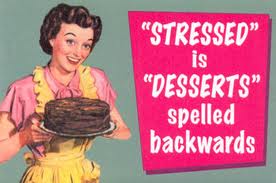What is stress? What is YOUR stress? People identify all kinds of reasons for why they feel stressed. They attribute their stress to financial instability to family related issues to unhappy work environments. In my practice, I see many clients who are stressed because of interpersonal disharmony. This can be caused from their primary relationship, their co-workers at their job or general dissatisfaction with their job that they may characterize as unstimulating or even overstimulating with a workload that is too big. The reasons go on and on but current social research reflects that 3/4s of Americans seeking medical care experience stress-related symptoms that are the cause of their complaints. The breakdown of stress symptoms is the following:
- Physical complaints= 77%
- Psychological complaints= 73%
Common complaints include fatigue, insomnia, headaches, anxiety and chronic physical aches and pains. Stress keeps doctors and the large pharmaceutical corporations thriving because it is the doctor who usually first sees the patient complaining of these stress-related symptoms. Most doctors prescribe medication and some might even suggest lifestyle changes, knowing fully well that only some patients will change the way they live their lives.
Most of us are habit driven reflecting in our patterns of daily life. If you happen to be a “highly sensitive person” who is more affected by environmental stimuli that can easily overwhelm, you must start to take better care of yourself.
Strategy: Take the time to sit with a laptop or paper and pen and just start writing down and describing your stress. Is it an oppressive job? A controlling or self-absorbed partner? A bed with a broken down box spring? A schedule that seems to preclude regular exercise or the time to shop for and cook healthy food? Physical exhaustion that conjures up images of being a slave? Compensatory behaviors such as using too much alcohol, food or drugs regularly?
I could go on but you get the point. Before you can chart a new course you must be willing to acknowledge what are your stressors. Stress destroys lives and breaks down our bodies! Often it is an unwillingness to acknowledge what is true and right in front of you, so consequently many people end up living in a state of resistance and partial denial, minimizing how they are really feeling emotionally. If you spend time mindfully attending to how you feel about the various stress factors you write down, you just may begin to notice that many of these feelings are being communicated through your physical body. These “symptoms” are somatisized information encoded in your body. In my DEH model, we work with the presupposition that the body never lies for it is the living embodiment of your unconscious and often repressed emotions. Through muscle testing it is easy to sort these underlying beliefs out. Consider working back and forth with the two awareness points of denial and minimization on one hand, and acceptance on the other. Then create an action plan.
If you need some help and support, contact your therapist and work with your own resistance about being weak and needing to ask for some help. There is a cultural theme in our country that at times becomes an imperative that says that success and greatness depends on self-reliance and solving your problems with your own god given intelligence. But in truth, we all need help and support at one time or another. There is a synergy that happens when we process and problem solve with another person. Therapists are trained to be nonjudgmental and work collaboratively. If you can resolve your stress on your own that’s great. If you remain stuck and frustrated make an appointment and start your New Year’s resolutions now. As we age, we should be blessed to know that every year life continues to get better and better. Create the life you want while you can. Consider that you are always creating your reality and the way your life unfolds is a choice. Consider being deliberate and intentional about your life direction. Imagine the possibilities.
Posted by Howard Brockman, LCSW
November 10, 2012
Howard Brockman
Latest posts by Howard Brockman (see all)
- How To Deal With Difficult And Aggressive People - September 8, 2014
- Mental Health Self-Test - May 8, 2014
- Psychotherapy or Psychiatry? - January 30, 2014
- Prevent Alzheimer’s Disease - August 22, 2013
- Depression, Mindfulness and the Inner Critic - July 27, 2013
